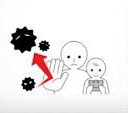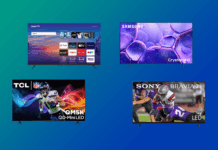
Remember when being “connected” as a console gamer didn’t refer to much more than the RF switch that plugged into your television? Nowadays, with the advent of online gaming, digital marketplaces, and services such as Xbox Live and Playstation Network, your gaming consoles are most often online even when you are not. Here are some tips to protect yourself and your children when getting your game on.
Protecting your private information
Many of us recall the great Playstation Network outage of 2011, a whopping 21 day service interruption in the aftermath of an “external intrusion” that compromised the personal details of approximately 77 million user accounts. This eye-opening experience was the first time that many users truly considered just how vulnerable their data was. It is important to consider just how much of your personal information you are willing to divulge through online gaming platforms, and protect yourself accordingly.
The first step is to choose a strong password, and more importantly, make sure you use it. With Sony, for example, it is possible to save password settings and store financial data in a manner that would allow a user to go all the way from booting up a console to making a credit card purchase from the Playstation Store without ever entering a password! Ensuring you have the “require password at checkout” feature enabled can go a long way towards preventing unauthorized purchases to your account. Microsoft has a number of optional “security proofs” where users can protect their accounts from unauthorized access using secondary email addresses, two-step verification processes, and trusted devices, to name a few. Such methods may seem cumbersome and annoying at first, but they offer an enhanced level of safety, the benefits of which are difficult to dismiss. Sacrificing quick and easy access for increased account security may just save you some grief down the line.
Avoiding storing your credit card information altogether is another great way to protect yourself. Digital sales are increasing exponentially, and sure, it’s convenient to purchase that new game from the comfort of your couch, but disclosing your financial data is unnecessary when the major platforms all offer credit in the form of pre-paid currency cards. Instant, secure funds for the Playstation Network, Xbox Live, and Nintendo eShop are available everywhere, from major retailers to drug stores to corner convenience stores, making them an easily accessible alternative—but even so, stocking up in advance and keeping a reasonable balance on hand for your platform of choice ensures you’ll always have a safe and easy way to make that impulse purchase during the next flash sale.
|
Console Safety Tips 1. Never divulge any personal information, written or verbal, when using an online gaming platform. 2. Choose a strong password, and enable it as “required” wherever and whenever possible. Make sure your security question cannot be easily guessed. 3. Be wary of suspicious activity on your account. If you believe your account has been compromised, change your password immediately, and contact customer service. 4. Most consoles incorporate web-based software such as Netflix, YouTube, and an internet browser. Be aware of what your child has access to, and limit if necessary. 5. Most profiles follow a user, not a console. Govern your child’s account, not just their activity at home. 6. Never respond to mean or threatening comments online. Mute/block users, and if prudent report the incident. |
Wipe it clean
If at any point you decide to trade in your used console, sell it privately, or maybe even donate it to an eager niece or nephew out of the goodness of your heart, the onus is on you to purge any sensitive information first. This doesn’t just mean deleting your profile—there’s more to it than that! Properly wiping a console is a multi-step process. For example, when transferring or disposing of a Playstation 4, you’ll need to back-up your data, deactivate the system for each user who has activated the console as their primary Playstation 4, and finally initialize the system, restoring all factory default settings and deleting saved data for all user accounts in the process.
Utilizing parental controls

Gaming consoles have an extensive capacity for parents to limit various aspects of their children’s use, but they can’t do much good if nobody bothers to set them up. Consoles offer access to the vast world of cyberspace with just as much ease as computers or cell phones do, so it’s important for parents to take a proactive role in monitoring and restricting what they want their children to see and do online via their gaming devices.
Sony, Microsoft, and Nintendo all allow for the creation of “sub accounts”, where parents can set specific guidelines and rules that apply to their children when using a console. Common features include the ability to limit what types of software can be purchased and/or played (based on ESRB rating), what types of content can be viewed, the limiting or disabling of chat features, and even the setting of a spending limit, or removing the ability to make purchases altogether. Most of these settings are intuitively defaulted to the more restrictive end of the spectrum, and although many of them may seem like plain old common sense, they still require parents to make the effort to institute parental controls in the first place. You probably wouldn’t leave a child continually unmonitored and unrestricted on a laptop or an iPad, so why would you do so with a multimedia video game console?
Recognizing and preventing cyber bullying
The evolution of online gaming has led to amazing advances that are allowing gamers to connect with each other in all kinds of new and exciting ways. As a shared experience, gaming is a wonderful thing, but it can bring along with it an undesirable element as well. Every online gaming platform has a firm policy against harassment and cyber bullying, but that doesn’t mean that every instance can be recognized and dealt with before any damage is done, so being able to protect yourself and avoid potentially toxic situations is key to a healthy online gaming experience.
Consider restricting access to various aspects of your presence to “friends only”. This will limit those who can see your information, easily contact you, and so on to those who are already (hopefully) in your circle of trust. Beyond that, blocking users is an indispensable tool, and can be used to prune out any further troublemakers. When playing in a public match online, you may find some users engaging in unpleasant, inappropriate, or downright abusive verbal behavior. Luckily most software nowadays gives you the option to individually mute other players, but sometimes muting or disengaging from group chat features entirely is a necessary reprieve. As a parent, you may want to look into further limiting chat and communication options, or even disabling them entirely depending on the age of your child.
That said, you shouldn’t always have to run from doing the thing you like to do because of a few bad apples. It’s important to feel comfortable when enjoying your gaming time as well, so remember that companies like Nintendo, Microsoft, and Sony do take harassment very seriously. Never hesitate to report a user who is spoiling everybody else’s good time with poor behaviour, or worse yet, bullying a targeted individual. The more users that recognize and report an incident, the more swift and likely the banhammer will fall.
Be safe, have fun!
Gaming should be a way to escape stress, not add to it. However with a bit of caution and common sense, most of the pitfalls of cyber security can be dodged like so many green shells and banana peels. Beyond that it’s simply every gamer’s responsibility to keep our online community safe and fun for everybody!



